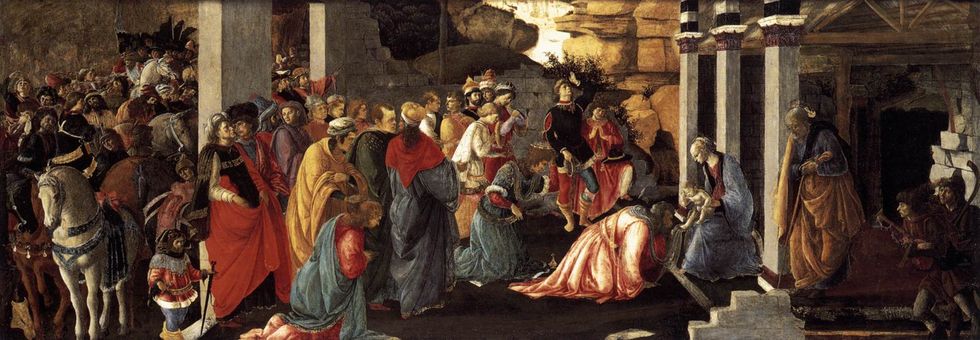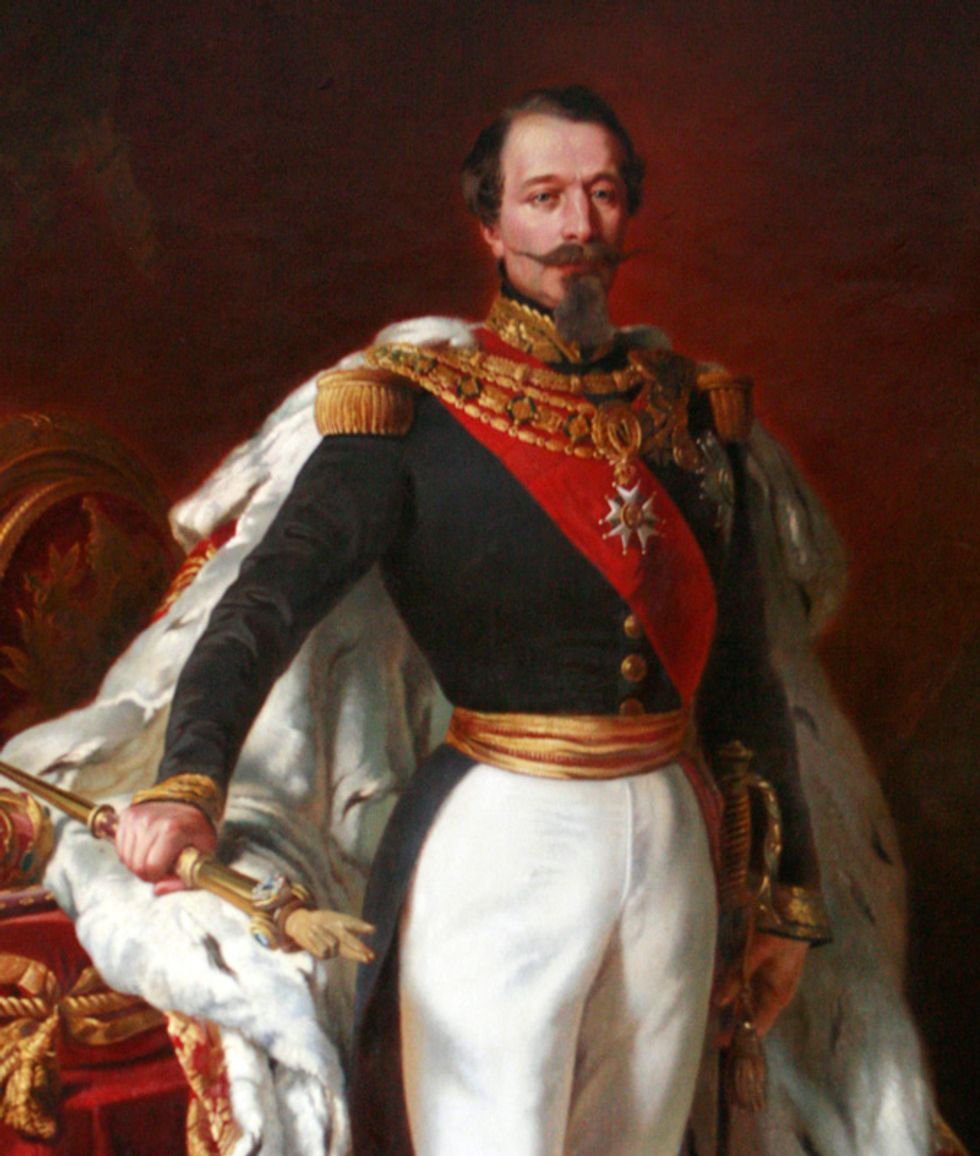When considering what exactly makes a new nation comparable to those of already steady foundations, several factors must be examined before defining that nation’s formidability. Although dozens of civilizations have had the opportunity to make their presence known throughout history, only the ones that stand the test of time proves true supremacy.
The most common element of a successful and united nation is the development of a motivated and dedicated leader; one that possesses both the dream and the drive to make his/her country great. Without a strong leader, nation-states are prone to economic failure, revolutionary uprisings of its citizens, and becoming obsolete or inconsequential in comparison to stronger peer nations.
After 1848, leaders such as Otto Von Bismarck, Camillo di Cavour, and Napoleon III have been known to champion the idea of creating an active and involved domestic climate, vicariously instilling a sense of nationalism in their respective domains.
One of France’s most prominent emperors is by far Louis Napoleon III (r. 1852-1870), the nephew of Napoleon I. Napoleon III spent most of his childhood with his mother, Hortense de Beauharnais, in Switzerland and Germany. He soon worked his way up to becoming a captain in the Swiss army, where he adopted a sense of liberalism and Bonapartism, galvanizing him to embark on revolutionary quests in Italy.
After a failed attempt at a military revolution at Strasbourg, he was forced out of Europe and sent to the United States by the government of Louis Philippe. However, he managed to return to Switzerland, moved to England, and then back to France after the February Revolution. Napoleon’s resiliency was proven after his numerous attempts of power grab. He managed to muster support from the French people and was soon elected to the national assembly.
Napoleon took it upon himself to personify the qualities of a good leader and keep the legacy of his family name intact. He evoked a sense of hope in the French people, and they looked up to him as a symbol of nationalism and nativism. Only a short time after, France began losing its pride.
Napoleon III (or Louis-Napoléon) overcame many obstacles in his life, being hated, exiled, and scorned by the government. However, he always seemed to push forward towards the goal of national councilship. He saw the abdication of King Louis Philippe as the perfect opportunity to create the Second Empire of France.
After becoming the elected Emperor of France due to a new plebiscite in ruling in November of 1852, Napoleon exercised dictatorial rule, rapid industrialization strategies (building highways, railroads, etc.), and a city of Paris movement to restore its traditional aesthetics. Napoleon’s influence in domestic affairs was proven successful as a construction and workforce boom, and the first French investment banks were established.
Alongside that, Napoleon’s foreign affairs were also successful at first; he was able to make a secret agreement with Sardinian premier, Camillo di Cavour, that created a joint campaign by France and Sardinia to exfoliate Austria from the face of Italy. Later, he made a new treaty with Austria, later setting up interactions between him and Prussia’s Otto Von Bismarck. Due to Napoleon’s life, wars, and idealisms, a new wave of uniform nationalism began to spread across Europe.
Beyond France, uprisings across Central and Eastern Europe driven by nationalist leaders, such as Lajos Kossuth of Hungary and others. However, in Italy, the desperation for a leader that was skilled in bringing together a group of disillusioned people was present as well. A need for pragmatism and diplomacy was the main issue in the land of the Catholics, and Camillo di Cavour knew exactly how to fix this problem.
Cavour took control of the Kingdom of Sardinia in Italy as the Italian statesman, where he was the active force behind King Victor Emmanuel II. Cavour is credited to have the most successful attempt of Italian unification under the house of Savoy due to his leadership, vision, and execution. After he was forced to resign from the army due to his liberal idea in 1831, he committed his time to traveling the country, experimentation in the agricultural world, and studying political science.
Due to the failed attempts at revolution in 1848-49, Cavour knew that creating a national Italian identity would be quite difficult, but that did not stop him from trying. In 1858, he was able to reach an agreement between Napoleon III in hopes to stop Austrian domination in Europe.
Camillo di Cavour's attempts to unify Italy are often noticed to be one of the most successful examples of nation-building and domestic leadership. Without Cavour’s ambition and motivation to make Italy its own nation, it probably would have been controlled by Austria or already established nations. In 1860, Tuscany, Parma, Modena, and the Romagna voted in favor of being annexed by Sardinia due to Cavour’s imperialistic professionalism.
Shortly after this, Cavour sent troops into the Papal States where he was able to annex those cities into Italian domain. After the abdication of Francis III in 1861, Cavour also annexed the kingdom of the Two Sicilies. Through Camillo’s diplomacy and foreign intervention, the kingdom of Italy doubled in size within seven years. Under Victor Emmanuel II, Italy became its own independent nation, as Cavour was acknowledged for his tremendous efforts just two months before his death.
Similar to Italy, Germany also had a hard time forging a national identity in the 19th century. Luckily, Otto von Bismarck took it upon himself to establish Germany as a world power. Bismarck was born into a family of Protestant Prussian landowning nobles, or Junkers. He began his political career as Prussia’s representative to the German Confederation in Frankfurt and shortly after, became the ambassador to Russia.
His reputation was defined as a man of staunch conservative morale and an unchanging opponent to the progressive leaders of Europe. Bismarck wanted to see his conservative views remain constant in Prussia, but he knew these goals would be impossible if he was ignorant of the changing times of the new imperialistic world.
In the first four decades of his life, Bismarck found himself to be hated by progressives and untrusted by influential political leaders of the Prussian court. Luckily, Bismarck finally got the opportunity of a lifetime when King Wilhelm I appointed him as minister-president of Prussia in 1862.
Once Otto von Bismarck gained a tangible role in the nation-building process of Germany, he was then able to inject his personal goals in national reconstruction. Due to his background in militaristic rule, Bismarck believed the best way to unify Germany was through “blood and iron” and an erudite understanding of “realpolitik”, or a system of principles based on practical rather than moral or ideological considerations. Bismarck’s Prussian victories against Denmark in 1864, Austria in 1866, and France in 1870-71, were when he found success in battle, and his use of war for political gain helped unify Germany on Prussian terms.
The Wars of German Unification achieved an evaporation of domestic opposition towards Prussia, guaranteeing that Bismarck’s position was secure at home. The defeats of two great national powers such, as Austria and France, helped build Germany’s formidability from the start, ensuring their defense against imperialism from other nations. In 1871, Bismarck created the Constitution of the German Empire, ending the ways of the volk, and creating the ways of the German.
As history has proven, there is no such thing as a strong nation without a strong leader. Through imperialism, industrialization, foreign relations, and political warfare, Napoleon III, Camillo di Cavour, and Otto von Bismarck have been literal representations of the qualities a good leader needs to have in order to forge a new nation. Without these leaders mustering up the courage to embark on a quest of nationalistic instillment, France, Italy, and Germany would not be the respected and independent world powers they are today.











































